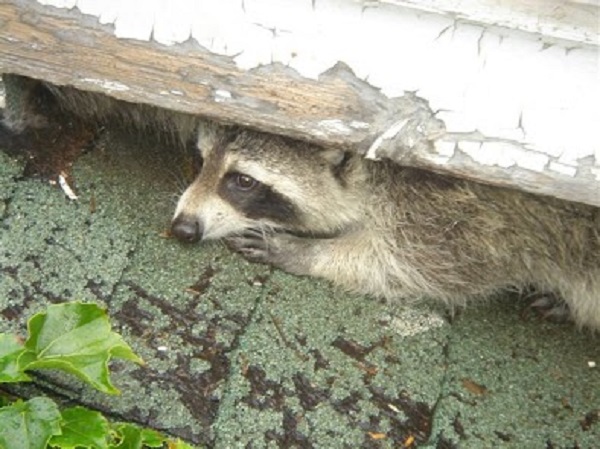The autumn season brings in crisp, cool temperatures, beautiful colour changes and shorter days. It is the signal that the cold months are just around the corner. Raccoons notice these changes as well, and they, too, begin to make their preparations for winter. If one or more move onto your property, contact experts in humane raccoon removal. It is important that this task is handled by professionals to protect the animal while also safeguarding your property.
What Do Raccoons Do in Cooler Weather?
As the weather turns cooler, raccoon activity focuses on food and shelter. These animals need to fatten up for the winter, so they spend more time looking for and eating food. Raccoons are omnivores and, in the wild, they munch on a variety of plants, animals and insects. These furry little bandits are adept at opening containers. In urban settings, they find pet food and human garbage to be particularly convenient sources of nourishment.
Raccoons are also focused on finding a safe spot to call home for the next few months. In nature, their preferred environment is the forest. There, they look for dens of other animals that they can claim as their own or shelters under fallen trees. In urban areas, your deck, basement, attic or shed all provide ideal protection from predators and the elements.
Raccoons do not hibernate over the winter months. Instead, they enter a state called torpor, during which their physiological systems switch into low gear. Torpor differs from hibernation in that the animal does not remain in this deep sleep for the entire winter. If the weather warms up, it will wake up and forage for food during the overnight hours and then return to the deep sleep of torpor.
What Can You Do To Prevent a Raccoon Invasion?
Raccoons don’t tend to be aggressive animals, but they will protect themselves if they feel threatened. They can also become quite a nuisance if they decide that your property is an ideal place to den over the winter. Fall is the best time to take preventative measures to make your home less appealing to an animal looking for food and winter shelter.
Pet Food
Do not feed raccoons, and do not keep pet food outside. These are clever animals that will return to where they know they have a reliable food source. They are more likely to seek out a den on your property if they know they will also be fed.
Garbage Cans
Coquitlam as a community has already established guidelines and regulations regarding proper refuse management. While the primary reason for these rules is to maintain a positive relationship with the area’s black bears, good waste control serves the same purpose for the local masked critters. As a reminder:
- Put all garbage in a plastic bag and tie it off before placing it in the bin.
- Store garbage cans in a shed or inside a building.
- Secure the lids using hooks and rubber straps (but be sure to remove them before your garbage is collected).
- Clean garbage cans regularly with ammonia to reduce odours that attract raccoons.
Buildings
If a raccoon sees a potential point of entry, it will work at making its way in, which may result in structural damage. Take steps to ensure openings are properly covered with heavy-duty wire screening. It is also a good idea to prune any trees that provide raccoons easy access to your roof and chimney.
Expert Humane Raccoon Removal Services
Skedaddle Humane Wildlife Control offers full-service raccoon control. Our technicians evaluate your property for signs of raccoon residents. We remove any animals in a way that keeps them safe from harm. Following removal, or if there are no signs of raccoons, we prepare your property to protect it from future intrusion. For more information or to schedule an appointment, give us a call at 604-552-4282.



